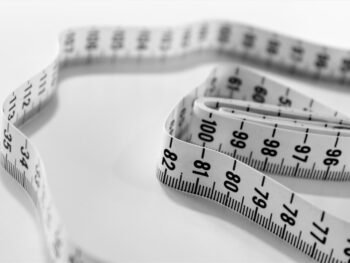Red flag weight loss refers to the warning signs and symptoms that indicate a person's weight loss journey may be unhealthy or dangerous. While losing weight can be a positive and beneficial goal for many individuals, it is important to recognize when weight loss becomes risky. Red flags in weight loss can include rapid weight loss, extreme dieting methods, and the use of potentially harmful supplements or diet pills. By understanding and recognizing these red flags, individuals can prioritize their health and safety during their weight loss journey.
Recognizing red flags in weight loss is crucial because it can help prevent potential health complications and ensure that weight loss is achieved in a safe and sustainable manner. It is common for people to become so focused on reaching their weight loss goals that they overlook the potential risks associated with certain methods or behaviors. By being aware of the warning signs, individuals can take steps to address any potential issues and make informed decisions about their weight loss journey.
Key Takeaways
- Rapid weight loss can be risky and lead to health complications.
- Red flag symptoms of unhealthy weight loss include extreme hunger, fatigue, and dizziness.
- Crash diets and fad weight loss programs can be dangerous and ineffective.
- Consulting a healthcare professional before starting a weight loss program is crucial for safety and success.
- Weight loss supplements and diet pills can have harmful side effects and should be approached with caution.
Understanding the Risks of Rapid Weight Loss
Rapid weight loss refers to losing a significant amount of weight in a short period of time, typically more than 1-2 pounds per week. While it may be tempting to achieve quick results, rapid weight loss can be dangerous and detrimental to one's health. When the body loses weight too quickly, it often leads to muscle loss, nutrient deficiencies, and a slower metabolism.
One of the main health risks associated with rapid weight loss is muscle loss. When the body is deprived of calories and nutrients, it turns to muscle tissue for energy. This can result in a decrease in muscle mass, which not only affects physical appearance but also slows down metabolism. A slower metabolism makes it more difficult to maintain weight loss in the long term.
Another risk of rapid weight loss is nutrient deficiencies. Crash diets or extreme calorie restriction often do not provide the body with all the essential nutrients it needs to function properly. This can lead to deficiencies in vitamins, minerals, and other important nutrients, which can have negative effects on overall health and well-being.
Identifying Red Flag Symptoms of Unhealthy Weight Loss
There are several red flag symptoms that indicate weight loss may be becoming unhealthy or dangerous. These symptoms can manifest physically, mentally, or emotionally. It is important to recognize these signs and take appropriate action to address any potential issues.
Physically, red flag symptoms of unhealthy weight loss may include extreme fatigue, dizziness, hair loss, and a weakened immune system. These symptoms can indicate that the body is not receiving enough nutrients and energy to function properly. Additionally, rapid weight loss can also lead to loose or sagging skin, which can be a sign of muscle loss.
Mentally and emotionally, red flag symptoms may include obsessive thoughts about food and weight, extreme mood swings, and feelings of guilt or shame related to eating. These symptoms can indicate an unhealthy relationship with food and body image, which can have long-term negative effects on mental health.
Dangers of Crash Diets and Fad Weight Loss Programs
Crash diets and fad weight loss programs are popular among individuals looking for quick results. However, these methods are often dangerous and unsustainable. Crash diets typically involve severe calorie restriction or the elimination of entire food groups, which can lead to nutrient deficiencies and metabolic imbalances.
One example of a popular fad diet is the ketogenic diet, which involves consuming very low amounts of carbohydrates and high amounts of fat. While this diet may result in rapid weight loss initially, it can also lead to nutrient deficiencies and an increased risk of heart disease due to the high intake of saturated fats.
Another example is the juice cleanse or detox diet, which involves consuming only fruit or vegetable juices for a certain period of time. While this may result in short-term weight loss due to calorie restriction, it is not a sustainable or healthy approach. Juice cleanses often lack essential nutrients and can lead to muscle loss, nutrient deficiencies, and a slowed metabolism.
Importance of Consulting a Healthcare Professional Before Starting a Weight Loss Program
Before starting any weight loss program, it is important to consult a healthcare professional. A healthcare professional can provide guidance and support, as well as help identify any potential red flags or risks associated with the chosen weight loss method. They can also help create a personalized plan that takes into account an individual's specific needs and goals.
During a consultation with a healthcare professional, they will typically assess an individual's overall health, medical history, and current lifestyle. They may also perform certain tests or measurements to gather more information about the individual's body composition and metabolic rate. Based on this information, they can provide recommendations for safe and effective weight loss strategies.
Red Flags in Weight Loss Supplements and Diet Pills

Weight loss supplements and diet pills are often marketed as quick and easy solutions for weight loss. However, many of these products can be dangerous and ineffective. It is important to recognize red flags in these products to avoid potential health risks.
One red flag to watch out for is exaggerated claims or promises made by the manufacturers of these supplements or pills. If a product claims to help you lose a significant amount of weight in a short period of time without any effort or lifestyle changes, it is likely too good to be true.
Another red flag is the presence of potentially harmful ingredients in these products. Some weight loss supplements and diet pills may contain stimulants, such as caffeine or ephedrine, which can have negative effects on the cardiovascular system and may lead to increased heart rate, high blood pressure, or even heart attacks.
The Role of Mental Health in Healthy Weight Loss
Mental health plays a crucial role in healthy weight loss. It is important to prioritize mental well-being during the weight loss journey to ensure long-term success and overall well-being. Mental health issues, such as stress, anxiety, and depression, can often contribute to unhealthy eating habits and hinder weight loss progress.
One way to prioritize mental health during weight loss is to practice self-care and stress management techniques. This can include engaging in activities that bring joy and relaxation, such as yoga, meditation, or spending time in nature. It is also important to seek support from friends, family, or a mental health professional if needed.
Strategies for Achieving Sustainable and Healthy Weight Loss
Achieving sustainable and healthy weight loss requires a combination of healthy eating habits, regular physical activity, and a positive mindset. Here are some strategies that can help individuals achieve their weight loss goals in a safe and sustainable manner:
1. Set realistic goals: It is important to set realistic and achievable goals that are specific, measurable, attainable, relevant, and time-bound (SMART). This helps to create a clear roadmap for success and prevents feelings of frustration or disappointment.
2. Focus on whole foods: Instead of relying on processed or packaged foods, prioritize whole foods that are nutrient-dense and provide the body with essential vitamins, minerals, and antioxidants. This includes fruits, vegetables, lean proteins, whole grains, and healthy fats.
3. Practice portion control: Pay attention to portion sizes and listen to your body's hunger and fullness cues. Avoid eating until you are overly full and instead aim for satisfaction.
4. Engage in regular physical activity: Incorporate regular exercise into your routine to support weight loss efforts and improve overall health. Find activities that you enjoy and make it a priority to move your body every day.
5. Practice mindful eating: Slow down during meals and pay attention to the taste, texture, and smell of the food. This helps to increase awareness of hunger and fullness cues and prevents overeating.
Reducing the Risk of Regaining Weight After Successful Weight Loss
Weight regain is a common challenge after successful weight loss. To reduce the risk of regaining weight, it is important to focus on long-term lifestyle changes rather than short-term fixes. Here are some tips to help maintain weight loss:
1. Maintain a balanced and varied diet: Continue to prioritize whole foods and a balanced diet even after reaching your weight loss goals. This helps to ensure that your body receives all the necessary nutrients and prevents feelings of deprivation or restriction.
2. Stay active: Regular physical activity is key to maintaining weight loss. Find activities that you enjoy and make it a habit to incorporate movement into your daily routine.
3. Monitor your progress: Keep track of your weight, measurements, and other relevant data to stay accountable and catch any potential weight regain early on. This can help you make adjustments to your lifestyle if needed.
4. Seek support: Surround yourself with a supportive network of friends, family, or a support group who can provide encouragement and accountability during your weight loss maintenance journey.
Prioritizing Health and Safety in Your Weight Loss Journey
In conclusion, recognizing red flags in weight loss is crucial for prioritizing health and safety during the weight loss journey. Rapid weight loss, crash diets, fad weight loss programs, and the use of potentially harmful supplements or diet pills can all pose risks to one's health. By consulting a healthcare professional, prioritizing mental health, and adopting sustainable and healthy strategies for weight loss, individuals can achieve their goals in a safe and effective manner. Remember to prioritize health and safety above all else on your weight loss journey.
If you're interested in weight loss and martial arts, you might also enjoy reading about the benefits of Champions Martial Arts training. This article explores how martial arts can help you master both your mind and body, leading to improved physical fitness and mental well-being. Check it out here.
FAQs
What is red flag weight loss?
Red flag weight loss refers to a sudden and significant drop in body weight without any apparent reason or effort. It can be a sign of an underlying medical condition that requires immediate attention.
What are the causes of red flag weight loss?
Red flag weight loss can be caused by various medical conditions such as cancer, hyperthyroidism, diabetes, gastrointestinal disorders, and mental health issues such as depression and anxiety.
What are the symptoms of red flag weight loss?
The symptoms of red flag weight loss include sudden and significant weight loss, loss of appetite, fatigue, weakness, and changes in bowel movements.
How is red flag weight loss diagnosed?
Red flag weight loss is diagnosed through a series of medical tests such as blood tests, imaging tests, and physical examinations. The tests are done to identify any underlying medical conditions that may be causing the weight loss.
What is the treatment for red flag weight loss?
The treatment for red flag weight loss depends on the underlying medical condition causing the weight loss. Treatment may include medication, surgery, or lifestyle changes such as diet and exercise.
What should I do if I experience red flag weight loss?
If you experience red flag weight loss, it is important to seek medical attention immediately. Your doctor will perform a series of tests to identify the underlying cause of the weight loss and recommend appropriate treatment.





